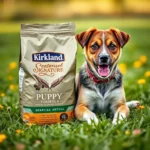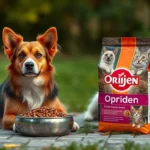
Introduction
Pancreatitis in dogs is a serious condition characterized by inflammation of the pancreas, an organ that plays a crucial role in digestion and blood sugar regulation. This condition can be acute, presenting suddenly with severe symptoms, or chronic, developing gradually over time. Common causes of pancreatitis in dogs include high-fat diets, obesity, certain medications, and underlying health issues. Symptoms may vary but often include vomiting, abdominal pain, lethargy, and loss of appetite.
Nutrition is vital in managing pancreatitis, as the right diet can significantly impact recovery and overall health. Pet owners are often left wondering about specific foods, including peanut butter, which many dogs love. This article explores whether it’s safe for dogs with pancreatitis to consume peanut butter and provides comprehensive insights into managing their dietary needs.
Understanding Pancreatitis in Dogs
What is Pancreatitis?
Pancreatitis is the inflammation of the pancreas and can be classified into two types: acute pancreatitis, which occurs suddenly and can lead to severe health issues, and chronic pancreatitis, which develops over time and can cause long-term damage. According to veterinary studies, pancreatitis is becoming increasingly prevalent among dogs, with certain breeds being more susceptible than others.
Symptoms of Pancreatitis
Common signs of pancreatitis in dogs include:
- Persistent vomiting
- Abdominal pain (often manifested by a hunched posture)
- Diarrhea
- Loss of appetite
- Lethargy
- Dehydration
It’s crucial to differentiate these symptoms from other health issues, as they can overlap with various gastrointestinal disorders. A veterinarian’s evaluation is essential for an accurate diagnosis.
Causes and Risk Factors
Several factors can trigger pancreatitis in dogs. Some of the most common include:
- High-fat diets: Sudden consumption of fatty foods can overwhelm the pancreas.
- Obesity: Overweight dogs are at a higher risk due to increased fat in the diet.
- Certain medications: Some drugs can induce pancreatitis as a side effect.
- Underlying health conditions: Diabetes, liver disease, and other ailments can make dogs more susceptible.
Certain breeds, such as Miniature Schnauzers, Yorkshire Terriers, and Dachshunds, are also predisposed to developing pancreatitis, making it crucial for owners of these breeds to monitor their diets closely.
Nutritional Needs of Dogs with Pancreatitis
Key Nutritional Considerations
A low-fat diet is essential for dogs with pancreatitis. Reducing fat intake can help prevent further inflammation of the pancreas and support recovery. In addition to being low in fat, the diet should be rich in easily digestible carbohydrates and high-quality proteins to promote healing.
Recommended nutrients and supplements may include:
- Omega-3 fatty acids: These can help reduce inflammation.
- Digestive enzymes: Assisting with food breakdown can alleviate stress on the pancreas.
- Probiotics: Beneficial bacteria can improve gut health and digestion.
Foods to Avoid
Certain foods should be strictly avoided to prevent exacerbation of pancreatitis. These include:
- High-fat foods: Such as fatty meats, oils, and rich dairy products.
- Processed treats: Many store-bought dog treats contain unhealthy fats and additives.
- Human foods: Foods like chocolate, grapes, onions, and garlic are toxic to dogs.
Understanding which foods can trigger pancreatitis is crucial for dog owners to make informed dietary choices.
Peanut Butter and Its Nutritional Profile
Nutritional Benefits of Peanut Butter
Peanut butter is often touted as a nutritious snack for dogs. It is rich in protein, healthy fats, vitamins B and E, niacin, and magnesium. These nutrients can provide energy and support overall health. Additionally, the protein content can be beneficial for dogs, especially when recovering from illnesses.
Risks Associated with Peanut Butter
However, peanut butter also poses risks, particularly for dogs with pancreatitis. The high-fat content can be problematic, as it may contribute to further inflammation of the pancreas. Additionally, many commercial peanut butters contain additives, preservatives, and sweeteners, such as xylitol, which is highly toxic to dogs.
It’s essential to check the label thoroughly before offering peanut butter to your dog, especially if they have a history of pancreatitis.
The Debate: Can Dogs with Pancreatitis Eat Peanut Butter?
Expert Opinions
Veterinarians often have varying opinions on the suitability of peanut butter for dogs with pancreatitis. Some may advise against it altogether due to its high-fat content, while others may suggest a very limited amount if it’s made from pure peanuts without added sugars or fats. Case studies have shown that some dogs can tolerate small amounts of peanut butter without adverse effects, but it’s always best to proceed with caution.
Safe Alternatives to Peanut Butter
If you’re concerned about the implications of peanut butter for your dog with pancreatitis, consider these low-fat, dog-safe treat alternatives:
- Pumpkin puree: A great source of fiber and low in fat.
- Carrots: Crunchy and low-calorie, they make for a healthy snack.
- Plain yogurt: Choose low-fat options without added sugars.
- Apple slices: Remove seeds and core, as they can be harmful.
For those who still wish to offer peanut butter, homemade recipes can be a safer alternative. You can blend plain peanuts into a paste without added oils or sugars, ensuring it’s as healthy as possible.
How to Introduce Peanut Butter Safely (If Allowed)
Guidelines for Serving Peanut Butter
If your veterinarian approves the use of peanut butter, it’s crucial to introduce it gradually. Start with a small serving size—usually no more than a teaspoon—and monitor your dog’s response. Look out for any signs of intolerance, such as vomiting or changes in appetite.
Monitoring Your Dog’s Health
Regular veterinary check-ups are essential for dogs with pancreatitis. Keeping a food diary can also be beneficial, helping you track what your dog eats and noting any adverse reactions. This practice allows you to make informed decisions regarding their diet and overall health.
Conclusion
When considering whether dogs with pancreatitis can eat peanut butter, it’s essential to weigh the nutritional benefits against the potential risks. While peanut butter can be a tasty treat for many dogs, its high-fat content makes it a questionable choice for those suffering from pancreatitis. Always consult with a veterinarian before introducing new foods into your dog’s diet, particularly those with specific health issues.
In summary, maintaining a low-fat, balanced diet is crucial for managing pancreatitis effectively. By prioritizing your dog’s health and making informed dietary choices, you can help them thrive.
FAQs
Can all dogs with pancreatitis eat peanut butter?
Not all dogs with pancreatitis can safely eat peanut butter. Consult your veterinarian for personalized advice.
What should I look for in a peanut butter brand?
Choose brands with minimal ingredients—preferably only peanuts—and no added sugars or xylitol.
Are there any signs that peanut butter is causing issues?
Watch for vomiting, diarrhea, or changes in appetite after introducing peanut butter.
Can I make my own peanut butter for my dog?
Yes! Blending plain peanuts without additives is a great way to create a dog-friendly peanut butter.
What are some other safe treats for dogs with pancreatitis?
Pumpkin puree, carrots, and plain yogurt are excellent low-fat alternatives.









